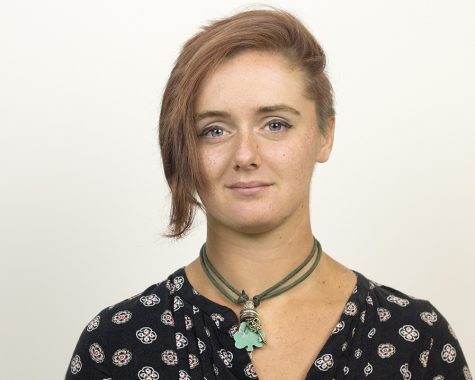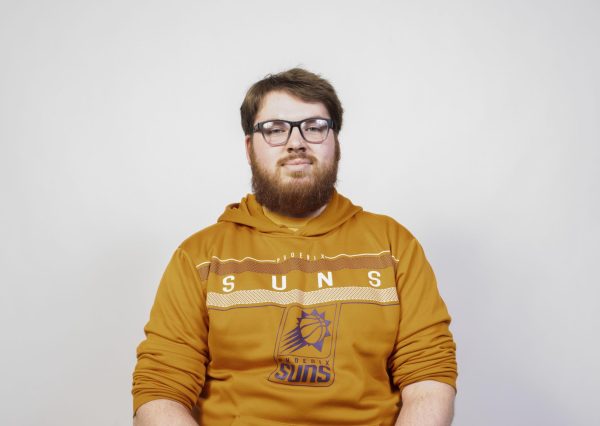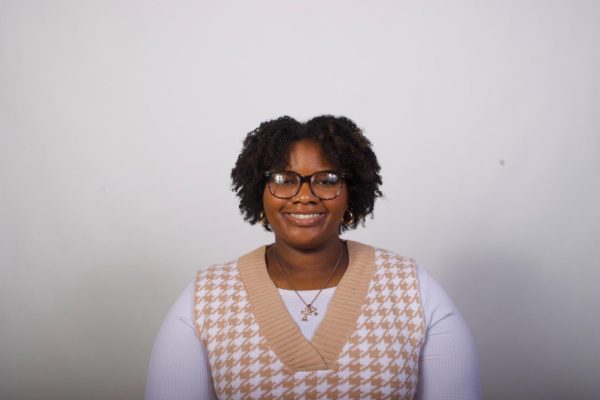Column: Ain’t is a word and I am going to say it
September 1, 2016
When I was growing up in rural southern Illinois, my country-bred, city-educated teachers always implored the farm children: “‘ain’t’ is not a word.” My classmates were scolded and corrected for saying it. They, of course, continued to say it anyway. Their parents said it. Why should the teacher tell them anything different?
I never said “ain’t” as a child. My parents seldom if ever used it. Mom was from Peoria, so “ain’t” was never a part of her vocabulary. Dad was country by birth, but years studying speech and theater in college bled the accent from his voice and the twanging words from his vocabulary. When he talks to his brother, you can still hear the years listening to professors and Chicagoan classmates: where Uncle Steve says “crick” and Dad responds “creek.”
Admittedly, I listened to my teachers a bit too much in grade school. I started to correct my peers when they let slip an “ain’t” in class. Beloved high school instructor Mr. Niehaus was my father, though, so I got a free pass to be picky about their language. That nit-picking, along with my stilted, precocious, bookish language was allowed as my teacher›s-child territory.
Eastern came as a little bit of a shock to me. I twanged a little, I realized! Just a little. Not enough to matter, until in class I accidentally let loose a “hem and haw,” or a “gesundheit,” neither of which my classmates recognized.
My very slight twang faded away quickly until all that was left was a lack of the elongated “A” that comes so naturally to northerners. The country-isms, though, remained, even getting worse the longer I maintained my job back in my hometown, returning every weekend to gather more outdated idioms.
At some point I picked up the word “ain’t.” Certainly it must have come from one of the old men or the farmers or the local tradespeople who frequent my store at home. No matter who it came from, it was, I realized, now a permanent fixture in my speech (though no reader of my writing would ever guess).
For quite a while I comforted myself with the knowledge that my informal speech and my formal speech were wildly different things. Then, as I became more accustomed to the arguments over Standard English and the hegemony of grammar, I started to feel confident in my ability to defend my use of “ain’t:” “It’s commonly used and understood,” “Why should we judge a person’s intelligence by their regional dialect?,” and “My worth should be measured by my ability to produce meaningful content and documents, not my lingual oddities in my off time.”
Imagine my surprise when I came across the most bullet-proof evidence in the world for my use of “ain’t.” “‘Ain’t,’” some obscure articles assured me, “can be grammatical!”
My grammarian heart quickened. But how could “ain’t” be grammatical, I wondered? The answer lies in semi-archaic contraction “amn’t,” according to worldwidewords.org. Site curator Michael Quinion describes the contraction “amn’t” as an uncommon shortening of “am” and “not,” found “almost exclusively in the inverted form [amn’t I.]”
More commonly, he notes, “am” and “not” were shortened to “an’t,” a similarly archaic contraction found in writing of famous authors such as Charles Dickens and Johnathan Swift. “An’t” naturally split into “ain’t” and was considered respectable and acceptable until grammarians began to take issue with it in the 18th century.
Some grammarians now claim that “ain’t” is the only existing contraction that fits the grammatical gap where “amn’t” once was. I am inclined to agree, not only because I use “ain’t” myself, but also because the use of “aren’t” in the places “amn’t” once was are, to me, maddening and stubborn holdouts against all logic.
I shall not ask you to incorporate “ain’t” into your vocabulary if you disagree, though it would warm my rural-Illinoisian heart to hear a little more twang day-to-day. However, I will implore: the next time you hear an “ain’t,” please let it be. This hardworking little contraction does not get enough love.
Shelby Niehaus is a senior English language arts major. She can be reached at 581-2812 or [email protected].
















































